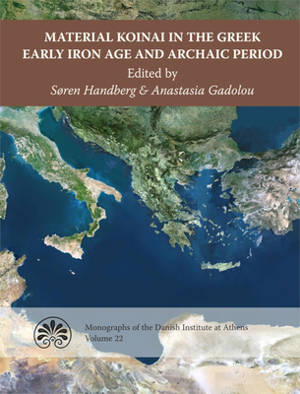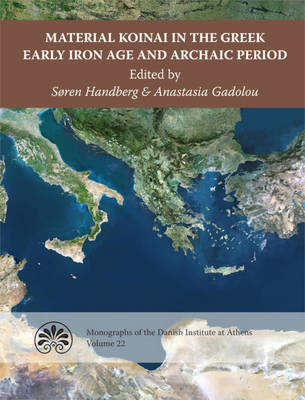
Bedankt voor het vertrouwen het afgelopen jaar! Om jou te bedanken bieden we GRATIS verzending (in België) aan op alles gedurende de hele maand januari.
- Afhalen na 1 uur in een winkel met voorraad
- In januari gratis thuislevering in België
- Ruim aanbod met 7 miljoen producten
Bedankt voor het vertrouwen het afgelopen jaar! Om jou te bedanken bieden we GRATIS verzending (in België) aan op alles gedurende de hele maand januari.
- Afhalen na 1 uur in een winkel met voorraad
- In januari gratis thuislevering in België
- Ruim aanbod met 7 miljoen producten
Zoeken
Material Koinai in the Greek Early Iron Age and Archaic Period
€ 91,95
+ 183 punten
Omschrijving
The ancient Greek word koine was used to describe the new common language dialect that became widespread in the ancient Greek world after the conquests of Alexander the Great. Modern scholars have increasingly used the word to conceptualise regional homogeneities in the material culture of the ancient Mediterranean. In this volume, twenty scholars from various disciplines present case studies that focus on the fundamental question of how to perceive and the social and cultural mechanisms that led to the spread and consumption of material culture in the Greek early Iron Age. Combined the chapters provide a critical examination of the use of the koine concept as a heuristic tool in historical research and discuss to what degree similarities in material culture reflect cultural connections. The volume will be of interest scholars interested in archaeological theory and method, the social significance of material culture, and the history of the ancient Greek world in the first half of the first millennium BC.
Specificaties
Betrokkenen
- Uitgeverij:
Inhoud
- Aantal bladzijden:
- 370
- Taal:
- Engels
- Reeks:
- Reeksnummer:
- nr. 22
Eigenschappen
- Productcode (EAN):
- 9788771843286
- Verschijningsdatum:
- 19/01/2018
- Uitvoering:
- Hardcover
- Formaat:
- Genaaid
- Afmetingen:
- 216 mm x 274 mm
- Gewicht:
- 1610 g

Alleen bij Standaard Boekhandel
+ 183 punten op je klantenkaart van Standaard Boekhandel
Beoordelingen
We publiceren alleen reviews die voldoen aan de voorwaarden voor reviews. Bekijk onze voorwaarden voor reviews.








